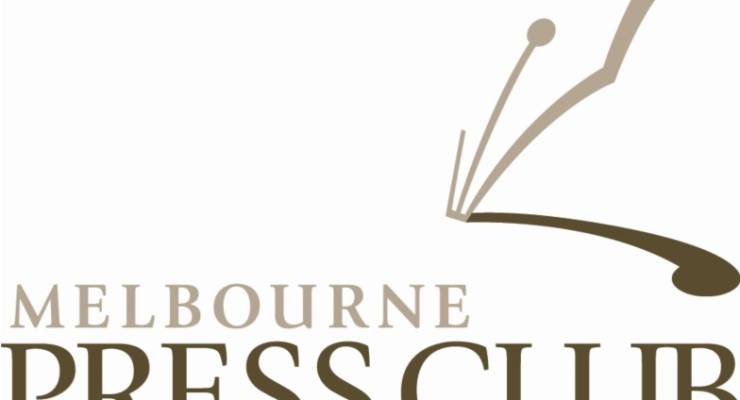
The Melbourne Press Club (MPC) is facing fresh accusations of being a closed circle following last week’s Annual General Meeting vote on its board members.
Indigenous journalist, Guardian Australia columnist, and occasional Crikey contributor Jack Latimore was nominated for one of 20 positions, and would have been the only person of colour on the board, which has roughly two men to every woman. Instead, the Birpai man and former daily editor of IndigenousX says he was encouraged not to run, and spoken down to when he attended the AGM vote. MPC CEO Mark Baker said, to his knowledge, no one involved with the MPC had encouraged Latimore to withdraw his nomination.
Latimore told Crikey he nominated for the board — according to its rules — on the encouragement from the late Phil Chubb, then-vice president of the club, and separately by another board member.
“I was quite happy to put my name forward,” Latimore said. “It fell in line with the things I was doing for my PhD and the activism I do around diversity in the media.”
Latimore was nominated for a Quill — awards presented by the MPC — in 2016 for a commentary piece about the lack of Indigenous voices in the mainstream media. Most years there are no more nominees than MPC board positions, so a vote isn’t required. But this year, there were 22 nominations for 20 available positions. He said that while he wasn’t surprised at not winning a seat on the board, he was frustrated at the lack of transparency about the vote, and the reception he was given when he turned up at the AGM on Wednesday.
“That ‘boys’ club clique’ was 100% evident when I was there … The sense I got was that I was an outsider and wasn’t in the same prestige as these people,” he said. “They were given an opportunity to work with Aboriginal people and people of colour through me being on there as a representative and they rejected it.”
In 2011, when the MPC still had a committee rather than a board, then-committee member Sushi Das quit, accusing the organisation of being a “bloke’s club”, and claiming decisions were monopolised by a “clique” of male insiders. At the time, Crikey reported on Das’ parting email to committee members, which said the process for nominating the president was not inclusive and lacked transparency.
“Of course under the rules, anyone is free to nominate anyone, but we all know this rarely happens,” Das wrote. “I think it would be in the club’s best interests to deal with this issue of a kitchen cabinet as a matter of priority. To do so would perhaps be one step towards addressing the most unfortunate reputation that the club has among Melbourne journalists of being a ‘bloke’s club’.”
Latimore told Crikey he hadn’t seen any evidence of the club having changed in his interactions with it either as a financial member — which he’s been since 2016 — or in his attempt to be elected to the board. He said those on the board had “blind spots” in who they nominated and voted for which came with a life of privilege.
“They’ve got more women on there [now]. They improved there, that’s great. But then you look at the type of women that they’ve got on there — they’re white,” he said.
Latimore said that using initiatives such as inducting Aboriginal journalist John Newfong into the MPC’s hall of fame were “black-cladding” — attempts to look diverse without changing the structures they operate in. “They’re trying to gain all that social capital without genuinely engaging,” Latimore said.
The board is predominantly made up of members who represent sponsors, and who work or have worked at the legacy media organisations, and there are just eight currently on the board who are working journalists. Latimore said his presence on the board would have also represented the changing nature of the media. Latimore’s wife Isabelle Oderberg, who’s been on the board for five years (but was not one of the board members to sign Latimore’s nomination form) also lost her seat on the board at Wednesday’s vote. She declined to comment to Crikey.
Baker said the nomination process was transparent and all financial members were notified of the AGM, as per the club’s rules. He said the board was diverse and had a “wide range of ages and industry experience”. “We are representative of the diversity of media in Victoria but open to expanded engagement with any organisations and individuals that wish to support our work — and who are are prepared to treat with respect those already working hard to advance our objectives,” he said.
Club president Adele Ferguson told Crikey that she has been planning a review of board governance since she took on the role in November last year, which would look at the size of the board, composition, governance and communication with members. “There is always room for more diversity but I think we are heading in the right direction,” she said.
NOTE: This story has been updated to correct Jack Latimore’s former title at IndigenousX.
UPDATE: You can read a full response from Melbourne Press Club CEO Mark Baker to this story here.








Respect is such a handy euphemism for acquiescence.
“They were given an opportunity to work with Aboriginal people and people of colour through me being on there as a representative and they rejected it.”
Latimore said that using initiatives such as inducting Aboriginal journalist John Newfong into the MPC’s hall of fame were “black-cladding”
One man’s missed opportunity for meaningful exchange of ideas, is another man’s blackcladding.
Apparently?
The Mark Baker comments are fairly scathing of Crikey’s reporting. Any chance of a response?